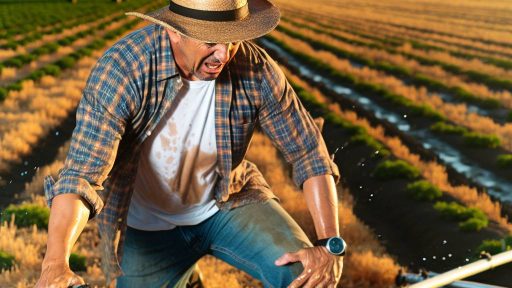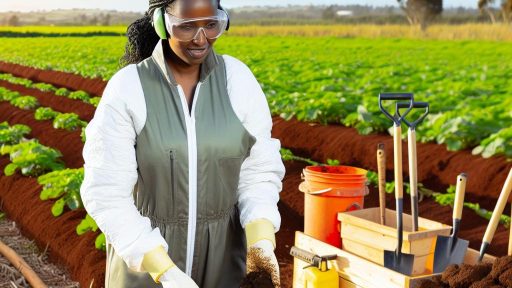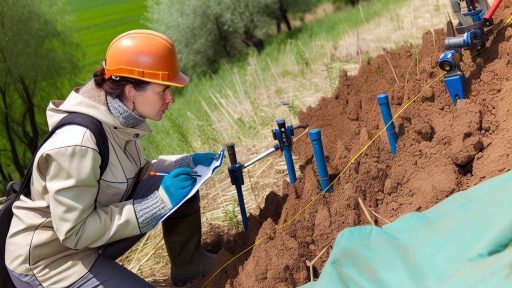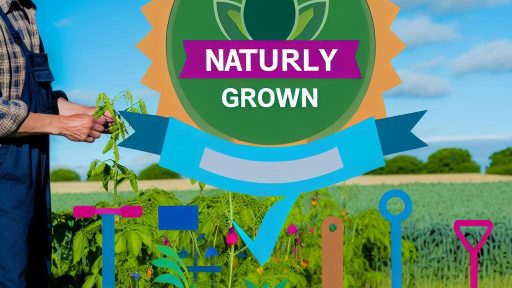Introduction to Sustainable Farm Certification and Its Importance for Livestock Welfare
Sustainable farm certification plays a vital role in promoting livestock welfare.
More farmers are recognizing the benefits of ethical treatment of animals.
This approach not only fosters animal health but also enhances consumer trust.
Understanding Sustainable Farm Certification
Sustainable farm certification sets standards for animal care and environmental practices.
It encourages farmers to adopt humane methods for raising livestock.
Moreover, certified farms often have better disease management protocols.
This results in healthier animals and improved farm productivity.
The Benefits of Ethical Treatment of Livestock
Ethical treatment enhances the well-being of animals.
Animals raised under humane conditions exhibit reduced stress.
Consequently, this leads to better quality meat and dairy products.
Consumers increasingly prefer products from certified sustainable farms.
Consumer Awareness and Demand
Consumers today are more aware of where their food comes from.
They seek transparency in farming practices and animal treatment.
As a result, farms that obtain certifications gain a competitive advantage.
This extra trust translates into loyal customer bases.
Transform Your Agribusiness
Unlock your farm's potential with expert advice tailored to your needs. Get actionable steps that drive real results.
Get StartedPromoting Environmental Sustainability
Sustainable farm certification also emphasizes environmental responsibility.
It encourages farmers to implement eco-friendly farming methods.
By focusing on sustainability, farms can reduce their carbon footprint.
This aligns agricultural practices with global environmental goals.
Hence, sustainable certification benefits both livestock and the planet.
Overview of Livestock Welfare Standards in Sustainable Farming
Importance of Livestock Welfare
Livestock welfare plays a crucial role in sustainable farming practices.
Healthy animals contribute to higher productivity and better food quality.
Additionally, good welfare standards enhance farmer reputation and consumer trust.
Key Welfare Standards
Several core principles underpin livestock welfare standards.
These principles include proper housing, nutrition, and veterinary care.
Moreover, they emphasize mental well-being and social interactions among animals.
Housing and Living Conditions
Appropriate housing protects animals from environmental stresses.
It should provide enough space for natural behaviors.
Good ventilation and bedding are also crucial for overall health.
Nutrition and Feeding Practices
Balanced nutrition is vital for livestock health and productivity.
Farmers must offer quality feed and clean water at all times.
Proper feeding practices reduce the risk of diseases and enhance growth.
Veterinary Care and Monitoring
Regular veterinary check-ups ensure animals remain healthy.
Farmers must monitor their herds for signs of illness or distress.
Effective treatment plans lead to improved animal welfare outcomes.
Regulatory Frameworks
Various organizations set welfare standards for livestock production.
The Global Animal Partnership outlines precise welfare criteria.
Similarly, the RSPCA has established robust guidelines for ethical treatment.
Certification Processes
Certification verifies compliance with welfare standards.
Showcase Your Farming Business
Publish your professional farming services profile on our blog for a one-time fee of $200 and reach a dedicated audience of farmers and agribusiness owners.
Publish Your ProfileFarmers must undergo inspections by accredited bodies.
Achieving certification boosts marketability and consumer confidence.
Consumer Awareness and Demand
Growing consumer interest drives the need for certified welfare standards.
Shoppers increasingly prefer ethically sourced products.
The demand for transparency encourages farmers to adopt best practices.
Challenges in Implementation
Farmers may face challenges in meeting welfare standards.
High costs of compliance can be a significant barrier.
Additionally, there might be a lack of knowledge or resources.
Education and Training
Providing education to farmers is essential for improving practices.
Workshops and training sessions can enhance knowledge about welfare standards.
Collaboration with agricultural extension services can facilitate learning.
Key Principles of Ethical Treatment of Animals in Farm Management
Respect for Animal Welfare
All farm animals should receive appropriate care and respect.
This principle underlines the importance of humane treatment.
Farmers must ensure that their animals live in suitable environments.
Additionally, animals should have access to proper nutrition and clean water.
Provision of Adequate Space
Living space is crucial for animal well-being.
Crowded conditions can lead to stress and health issues.
Farm management should allocate enough space for each animal.
This includes areas for movement and social interactions.
Freedom from Pain and Suffering
Animals must be protected from unnecessary pain and suffering.
Farm procedures should follow humane practices at all times.
Prompt veterinary care is essential for sick or injured animals.
Farmers should employ strategies to minimize stress during handling.
Natural Behavior Encouragement
Animals thrive when allowed to exhibit their natural behaviors.
This includes socializing with others of their kind.
Providing enrichment helps keep animals mentally and physically stimulated.
Such practices create happier, healthier livestock.
Transparency and Traceability in Farming Practices
Transparency in farming practices fosters consumer trust.
Farmers should be open about their treatment methods.
Traceability ensures accountability throughout the supply chain.
It is vital for consumers to know where their food originates.
Continuous Improvement and Education
Farmers must commit to ongoing education about animal welfare.
Participating in workshops and training can enhance understanding.
New research can help improve farming practices consistently.
Farmers should strive to apply the latest knowledge to their operations.
Find Out More: The Importance of Soil Microorganisms in a Healthy Permaculture Farm
Benefits of Sustainable Certification for Farmers and Livestock
Enhanced Marketability
Sustainable certification can significantly enhance marketability for farmers.
This label attracts consumers who prioritize ethical treatment of animals.
Many shoppers are willing to pay a premium for certified products.
As a result, farmers can enjoy increased profitability.
Showcase Your Farming Business
Publish your professional farming services profile on our blog for a one-time fee of $200 and reach a dedicated audience of farmers and agribusiness owners.
Publish Your ProfileAccess to New Markets
Certain retailers mandate sustainable certification for their suppliers.
This requirement opens doors to new business opportunities.
Farmers can tap into a growing segment focused on ethical sourcing.
Improved Animal Welfare
Sustainable certification promotes the welfare of livestock on farms.
Farmers must adhere to rigorous animal care standards.
Better animal welfare can lead to healthier, more productive livestock.
Consequently, livestock can exhibit improved growth rates and reproductive health.
Environmental Benefits
Sustainable practices contribute to environmental health.
Farmers who adopt these methods can reduce their carbon footprint.
They also improve soil fertility and water quality.
Ultimately, this transformation supports biodiversity in local ecosystems.
Community Support and Reputation
Farmers engaging in ethical practices build better community relationships.
Consumers often support local farms prioritizing sustainability.
Such initiatives can create a positive public image for the farm.
A strong reputation may lead to loyal customer bases over time.
Discover More: A Comprehensive Overview Of Sustainable Farm Audits And Certification Prep
Case Studies of Successful Sustainable Farm Certifications
The New Leaf Farm Certification
New Leaf Farm achieved organic certification through dedicated practices.
This farm provides spacious barns for their livestock.
They also allow access to pasture year-round.
Consequently, their animals exhibit natural behaviors and welfare is prioritized.
New Leaf adheres to strict health protocols.
As a result, they maintain a low incidence of disease, enhancing animal well-being.
Consumer awareness of their methods has increased sales significantly.
Green Meadows Livestock Program
Green Meadows implemented the Animal Welfare Approved certification.
This program focuses heavily on ethical treatment in livestock management.
Green Meadows provides organic feed and avoids antibiotics.
Furthermore, they ensure livestock has ample outdoor access.
The farm practices rotational grazing to improve soil health.
As a result, their certification has fostered a loyal customer base.
Earth-Friendly Ranching Initiative
Earth-Friendly Ranching promotes regenerative agriculture practices.
They obtained a sustainable ranch certification from a recognized body.
This initiative emphasizes biodiversity and crop rotation.
Additionally, they integrate livestock into various ecosystems.
This contributes to healthier pastures and improved animal welfare.
Moreover, Earth-Friendly Ranching educates consumers about its practices.
The transparent approach builds trust and loyalty among buyers.
Sunny Hill Farm’s Free-Range Initiative
Sunny Hill Farm has embraced the free-range certification model.
Each animal receives daily access to outdoor fields.
They prioritize animal autonomy by providing environmental enrichment.
The farm’s dedication to humane standards sets them apart in the market.
Showcase Your Farming Business
Publish your professional farming services profile on our blog for a one-time fee of $200 and reach a dedicated audience of farmers and agribusiness owners.
Publish Your ProfileThey have developed strong relationships with local consumers.
This commitment results in excellent word-of-mouth marketing.
Harmony Grove Sustainable Agriculture
Harmony Grove achieved dual certifications for organic and humane treatment.
They follow stringent practices that prevent overcrowding in barns.
Animals experience minimal stress through careful handling practices.
Consequently, their ethical focus has drawn media attention.
The farm regularly hosts community workshops on sustainable practices.
This engagement builds a strong local following and increases sales.
Gain More Insights: Renewable Resource Utilization for Small-Scale Farmers
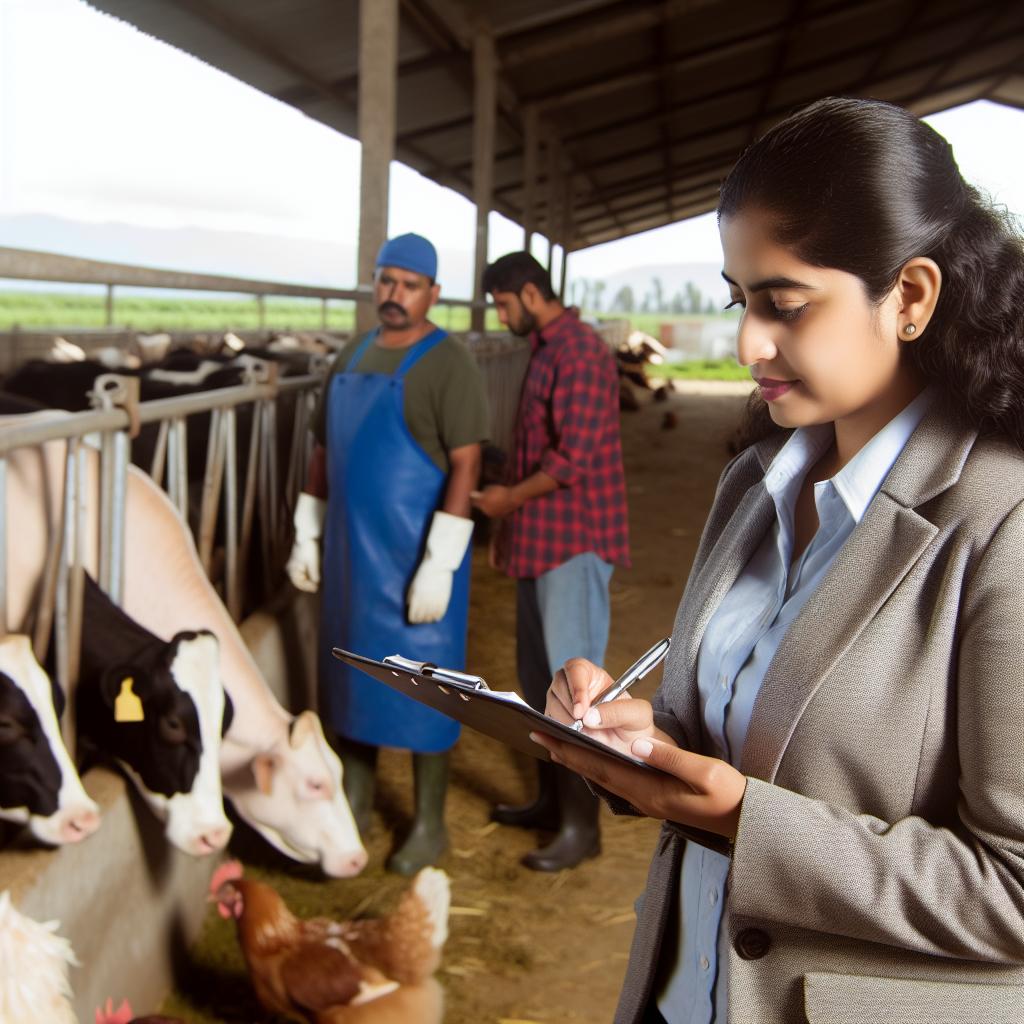
Challenges and Barriers to Achieving Sustainable Certification for Livestock
Regulatory Hurdles
Regulatory frameworks can complicate sustainable certification efforts.
Each region has specific laws governing livestock welfare.
Moreover, inconsistent standards across regions cause confusion.
This inconsistency may deter farmers from pursuing certification.
Additionally, the complexity of regulations can overwhelm small producers.
Economic Constraints
Economics play a significant role in sustainable farming decisions.
Cost implications can discourage farmers from implementing changes.
The price of certification can be prohibitive for many.
Additionally, organic or humane feed often costs more.
Profit margins may narrow, making sustainable practices challenging.
Lack of Awareness and Education
Awareness of sustainable practices is crucial for progress.
Many farmers lack knowledge about certification processes.
Educational resources may be scarce or inaccessible.
Furthermore, misinformation about sustainable farming persists.
This lack of understanding can inhibit the willingness to change.
Market Demand and Competition
Market demand influences farmers’ decisions significantly.
Consumers often prioritize price over sustainability.
This preference can lead farmers to forego sustainable practices.
Additionally, competition from non-certified farms creates pressure.
As a result, many farmers hesitate to invest in sustainable methods.
Supply Chain Limitations
An efficient supply chain is essential for sustainable practices.
Limited access to certified inputs can obstruct progress.
Additionally, transportation difficulties can hinder product distribution.
These limitations can affect the overall viability of sustainable practices.
Moreover, farmers may struggle to find markets for certified products.
See Related Content: Sustainable Beef Cattle Farming Methods for Eco-Friendly Ranching
Role of Consumers in Promoting Sustainable and Ethical Farming Practices
Understanding Consumer Influence
Consumers play a vital role in fostering sustainable farming practices.
By choosing products that are certified for ethical treatment, they send a clear message.
This encourages farmers to adopt more responsible practices.
Moreover, informed consumers can drive demand for transparency in the supply chain.
Supporting Sustainable Certifications
Consumers should actively seek products with sustainable certifications.
Showcase Your Farming Business
Publish your professional farming services profile on our blog for a one-time fee of $200 and reach a dedicated audience of farmers and agribusiness owners.
Publish Your ProfileThese certifications often ensure higher welfare standards for livestock.
Brands like Pasture Prime and Ethical Farm Alliance exemplify this commitment.
When consumers prioritize such labels, it influences market trends significantly.
Educating Others About Ethical Choices
Sharing knowledge about sustainable and ethical options is crucial.
Conversations about the importance of animal welfare can change perceptions.
Furthermore, consumers can leverage social media to spread awareness.
Every shared post helps educate others about their shopping choices.
Participating in Local Initiatives
Joining community-supported agriculture programs can enhance local farming.
These programs enable consumers to understand where their food comes from.
Additionally, they support local farmers committed to ethical practices.
Participation strengthens the local economy and fosters community relationships.
Advocating for Policy Change
Consumers can influence policies by voicing their support for sustainable farming.
Engaging with legislators can promote better regulations for livestock welfare.
Petitions and grassroots movements amplify consumer voices effectively.
Ultimately, collective action can lead to meaningful reforms in agriculture.
Future Trends in Sustainable Farming and Livestock Welfare Certification
Adoption of Technology
Technology plays a crucial role in modern sustainable farming.
Precision farming techniques enhance efficiency and productivity.
Farmers increasingly utilize data analytics for decision-making.
Moreover, automation in livestock handling improves animal welfare.
For instance, smart sensors monitor animal health in real time.
Regenerative Agricultural Practices
Regenerative agriculture focuses on restoring soil health.
This approach enhances biodiversity and carbon sequestration.
Farmers adopt cover crops and rotational grazing methods.
Consequently, these practices lead to healthier ecosystems.
Consumer Demand for Ethical Products
Consumers increasingly demand ethically sourced products.
This trend influences how farmers manage livestock welfare.
Certification programs emerge to validate these practices.
Transparency in the supply chain becomes essential for trust.
As a result, many brands highlight their ethical farming methods.
Government Regulations and Support
Governments are introducing stricter regulations for livestock welfare.
This shift urges farmers to adopt better standards.
Incentives for sustainable practices become more common.
Support programs assist farmers in transitioning to eco-friendly methods.
Consequently, compliance with certifications grows in importance.
Circular Economy in Farming
The concept of a circular economy gains traction in agriculture.
Farmers recycle waste products to create sustainable inputs.
This method reduces waste and encourages resource efficiency.
For example, animal waste transforms into organic fertilizers.
Thus, the cycle of production and consumption aligns with sustainability.
Additional Resources
Certified Humane – A Project of Humane Farm Animal Care
Showcase Your Farming Business
Publish your professional farming services profile on our blog for a one-time fee of $200 and reach a dedicated audience of farmers and agribusiness owners.
Publish Your ProfileCertified Animal Welfare Approved by AGW food label.

